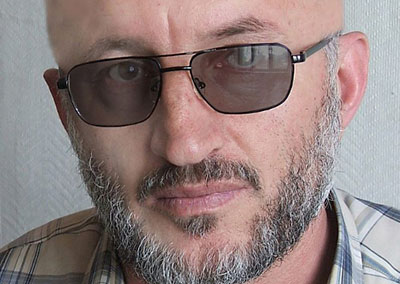New York, July 9, 2013–Today’s murder of an editor in the volatile republic of Dagestan is a grim reminder that Russia is one of the deadliest countries in the world for journalists, the Committee to Protect Journalists said today. Akhmednabi Akhmednabiyev, deputy editor of the independent news outlet Novoye Delo and a contributor to the independent regional news website Kavkazsky Uzel, had been the target of previous threats and attacks.
“We are outraged by the murder of Akhmednabi Akhmednabiyev, whom the authorities knew had been the target of death threats for many months,” said CPJ Deputy Director Robert Mahoney. “Federal authorities now must investigate not only our colleague’s killing, but also the foot-dragging and failure of the local authorities to investigate the repeated threats.”
Akhmednabiyev, 53, was shot at 7 a.m. outside his house in the Semender suburb of the regional capital of Makhachkala, according to regional and international press reports. The Moscow-based independent newspaper Novaya Gazeta reported that the gunman shot at the journalist from a car before fleeing the scene.
Akhmednabiyev often covered sensitive topics, including government corruption and abductions, arbitrary detentions, and torture of local residents by local and federal authorities, according to Kavkazsky Uzel and other news reports. He also publicly criticized a regional governor from his native Akhvakh region of Dagestan for corruption and abuse of office, and covered protest rallies in which local residents urged the official to step down.
Grigory Shvedov, chief editor of Kavkazsky Uzel, told CPJ that Akhmednabiyev’s murder was politically motivated and connected to his journalism. Russia’s Investigative Committee, a federal agency tasked with solving grave crimes, opened an investigation into the killing and released a statement that said it considers journalism as one of the primary motives in the murder.
Akhmednabiyev had reported being threatened and attacked in the past. In January, he told authorities he had received threats via text messages and that an unknown man had shot at him outside his home several times from a car, according to Novaya Gazeta and Kavkazsky Uzel. Akhmednabiyev was not injured in the attack, but his car was damaged. News accounts reported that Akhmednabiyev asked authorities for protection after the attack, but the request was not granted.
Shvedov said that local authorities also refused to investigate the attack as attempted murder and instead classified the case as property damage, which meant fewer resources were devoted to the case. Akhmednabiyev’s lawyer contested the police response in court, and in April, Dagestan’s Supreme Court ordered regional prosecutors to reconsider the case classification, according to Kavkazsky Uzel. In June, the prosecutors said they would address the case by Wednesday.
News reports also said that Akhmednabiyev’s name had appeared on a so-called “death list” published anonymously and distributed in the form of a handout in Makhachkala in September 2009. The handout, which named eight journalists among its targets, called for “destruction of the bandits and revenge for police officers and peaceful citizens.” In December 2011, one journalist from that list, editor Gadzhimurad Kamalov, was murdered in Makhachkala.
Russia remains one of the deadly countries for journalists, CPJ research shows. At least five journalists were killed with impunity in Dagestan during the last decade, CPJ research shows. Russia is ranked ninth on CPJ’s Impunity Index, which spotlights countries where journalists are slain and the killers go free.
- For more data and analysis, visit CPJ’s Russia page.
EDITOR’S NOTE: This alert has been modified to reflect the correct age of Akhmednabiyev.
